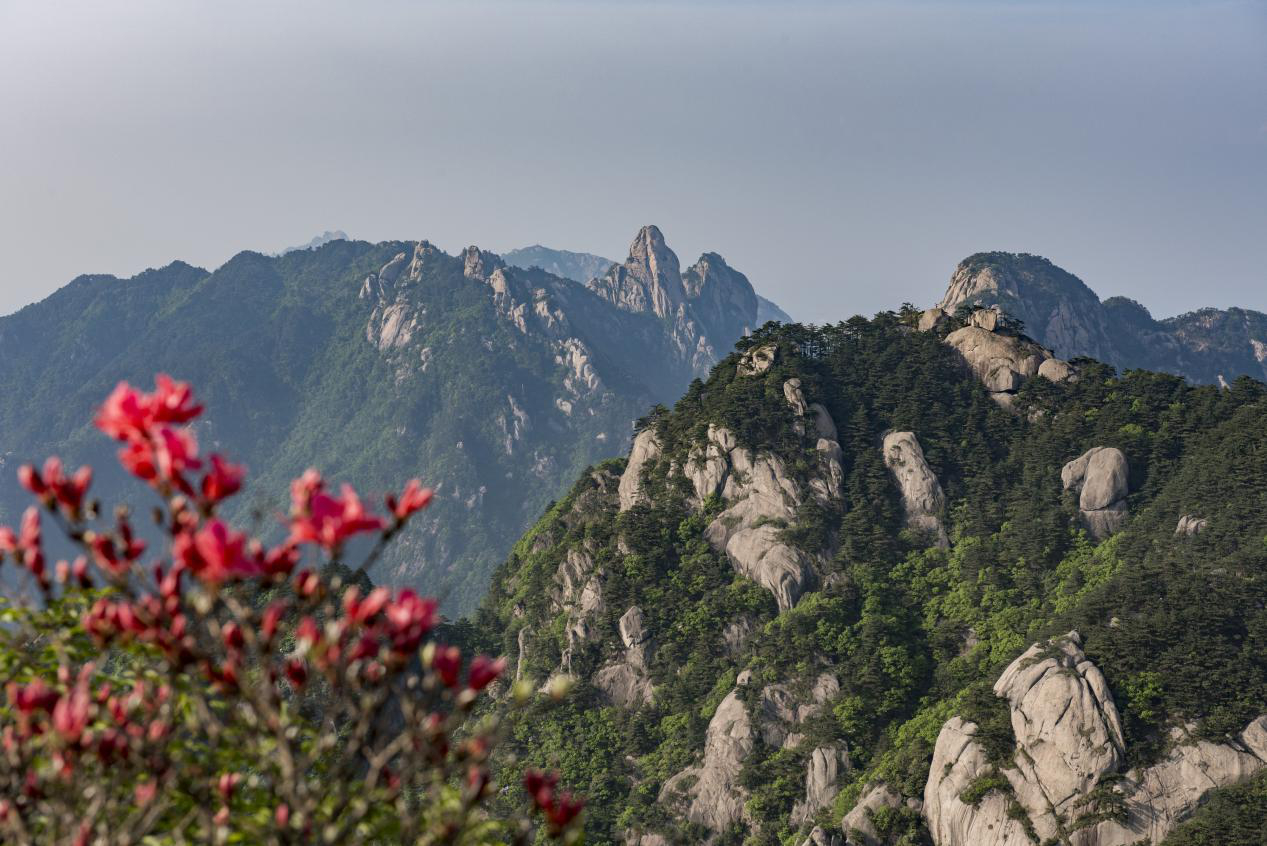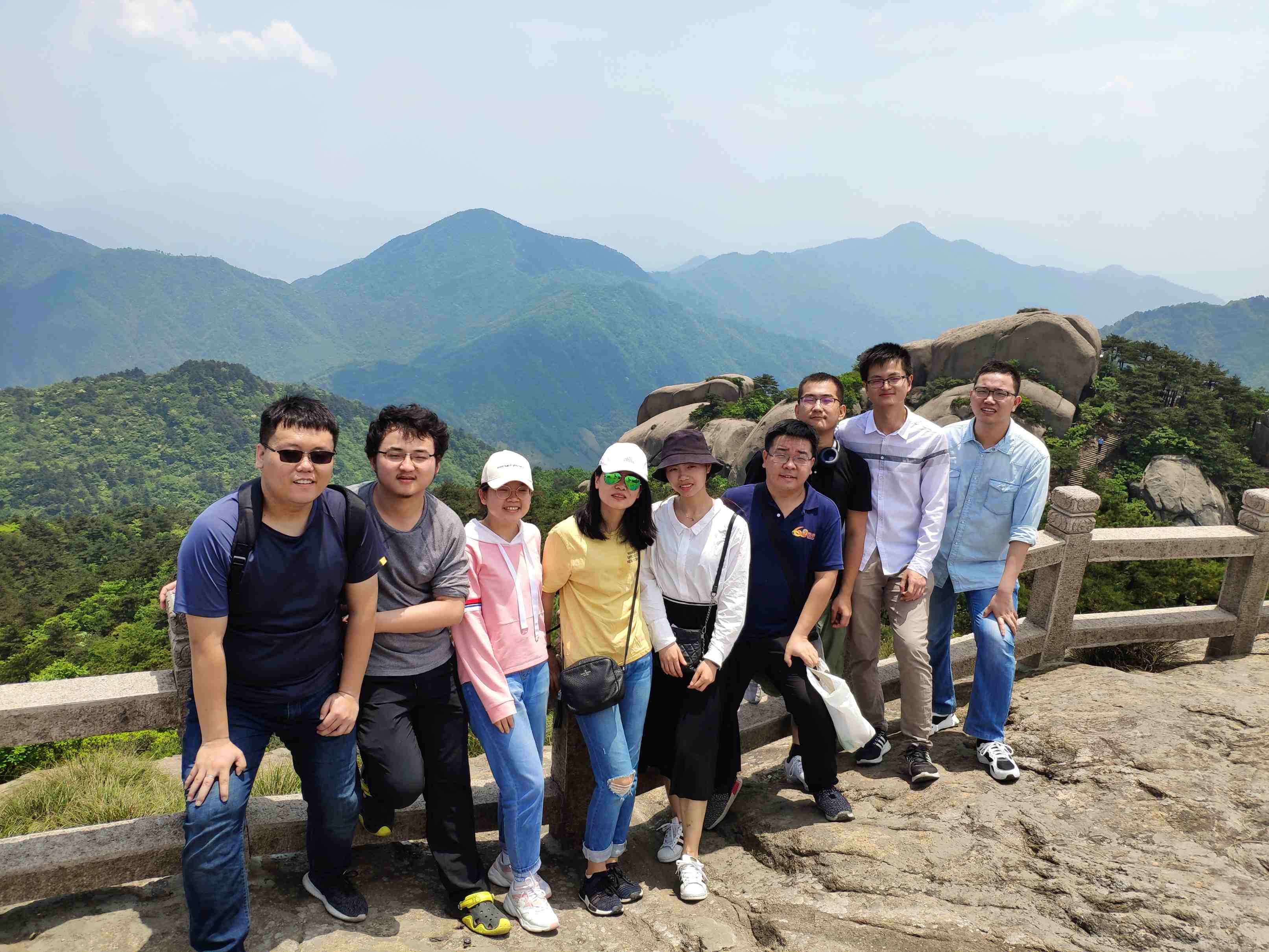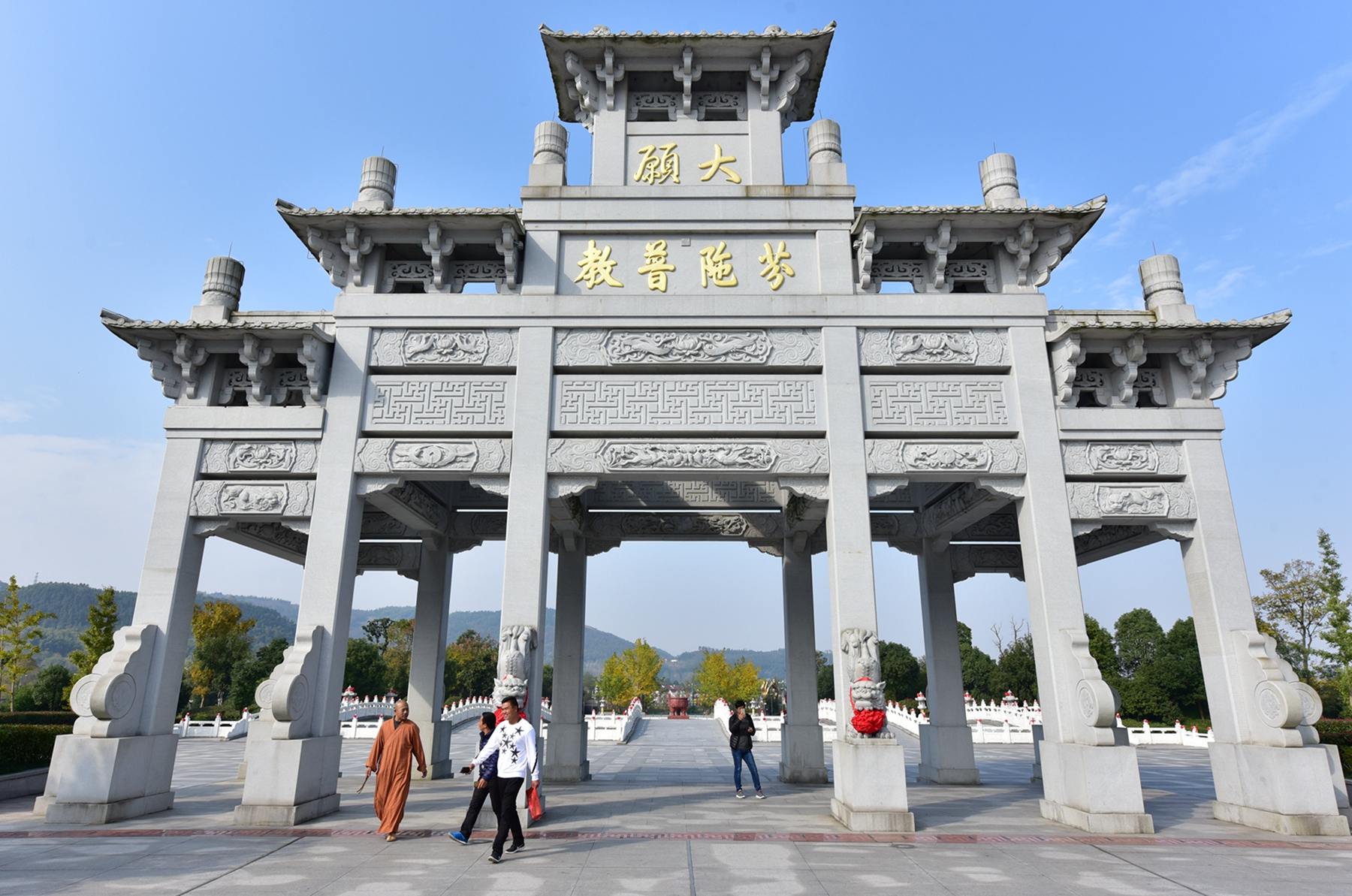On May 12, 2019, under the leadership of professor Qin, our group members came to Chizhou City, Anhui Province to visit the Jiuhua Mountain National Geological Park.
Jiuhua Mountain is known as one of the four famous mountains of Buddhism in China. Jiuhua Mountain has a rich historical and cultural heritage. Li Bai, a famous poet of the Tang Dynasty, visited Jiuhua Mountain many times and wrote many poems to praise Jiuhua Mountain. Since then, Jiuhua Mountain was named after Li Bai's poems. The geological resources of Jiuhua Mountain are also rich, and the Jiuhua Mountain Geological Park has a complete “peak-hill-basin” landform structure. The different types of granites produced by the collision of continental crustal in East Asia are the best carriers for studying magmatic mixing and the model sites for recognizing fluid-rich acidic magmatic crystalline processes (miarolitic granite).

At 10 o'clock in the morning, we arrived at the foot of Jiuhua Mountain and took a cableway to the scenic area of Huatai. Huatai has always been famous for its naturally formed sleeping Buddha and the blooming rhododendron. Along the direction of the Huatai, we climb up to appreciate the unique landscapes formed by the Jiuhua Mountain Granite Group. Among them, the most famous ones are rocks standing on the edge of the cliff, as if Buddhas is overlooking all beings.

On the way up to the mountain, it is noon when we reached the top of the mountain. Under the shade of a pine tree, we took a rest and had picnic. Although the flowering period of rhododendron has passed, and the rhododendron at the foot of the mountain has withered, there are still bright rhododendrons on the top of the mountain, adding color to our trip.
After that, we went to the plank road and there were a lot of people on the way. The downhill stack road is built on the hillside and lies across the mountains. Through the plank road, you can overlook the dense jungle and steep cliffs to experience the excitement of high altitude. Back at the mountainside, we left the Huatai by the cableway.

Coming to the foot of the mountain, we visited Dayuan Cultural Park in Jiuhua Mountain. It is rich in Buddhism breath in the park, the lotus pond is dotted, and the koi fish in the pool are swimming around to meet the tourists. There are many temples in the park, and many monks and lamas are discussing the profound Buddhist scriptures. At the end of the mountain temple, it is a bronze statue of Kṣitigarbha with a tin cane on the right and a Mani orb on the left. It blesses all the people to live and work in peace and contentment.

At four o'clock in the afternoon, we left the Buddhist holy mountain. The poet's praise and the legend of the Kṣitigarbha have jointly created the magnificent and mysterious natural and cultural landscape of Jiuhua Mountain. This trip gives us a pilgrimage to cleanse the soul, so that we can temporarily stay away from the hustle and relax ourselves. We believe that only the combination of work and rest can do a better job, and we hope that our future work will flourish and create new achievements.
contributor: Xiaohui Ma
